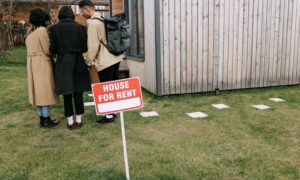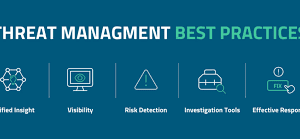Effective tenant management is one of the most crucial aspects of maintaining and improving rental properties. Whether it’s a single-family home or a large apartment complex, managing tenants well not only ensures a stable income but also enhances the value of the property. Good tenant management fosters long-term relationships, reduces vacancies, ensures timely rent payments, and encourages responsible property usage. Estate agents in London, for example, often emphasize tenant management as a vital strategy to maximize property value.
This article explores the benefits and strategies of tenant management and how it plays a vital role in improving rental properties.
-
Ensuring Tenant Satisfaction
Tenant satisfaction is the foundation of a well-maintained property. When tenants are happy, they are more likely to stay for a long time, reducing turnover rates and the costs associated with finding new renters. Satisfied tenants also tend to take better care of the property, which means fewer maintenance issues and lower repair costs for property owners.
Effective tenant management ensures that landlords and property managers maintain open lines of communication. Promptly addressing tenant concerns, from maintenance requests to lease agreement queries, shows that you value their comfort and well-being. This fosters a positive relationship, encouraging tenants to respect and care for the property.
How to Improve Tenant Satisfaction:
- Regular Communication: Establish regular check-ins with tenants to ensure their needs are met and address any emerging concerns.
- Quick Maintenance Response: Promptly attending to repair requests helps avoid bigger problems down the line and improves tenant satisfaction.
- Tenant Feedback: Encourage feedback from tenants about their experience living on the property. Use the feedback to make improvements where possible.
-
Reducing Turnover Rates
A high turnover rate can be costly for property owners, not just in terms of missed rental income but also the expenses involved in cleaning, repairing, and marketing the unit for new tenants. Tenant management helps minimize turnover by fostering long-term relationships. Happy tenants who feel valued are more likely to renew their leases.
Additionally, clear lease terms and regular communication help set expectations for tenants, reducing the chances of misunderstandings or conflicts that might lead them to move out. A smooth and professional management process encourages tenants to view the property as a long-term home rather than a temporary stop.
Strategies for Reducing Turnover:
- Flexible Lease Agreements: Offering flexible terms such as short-term lease extensions or month-to-month options can make tenants feel more comfortable staying longer.
- Incentives for Lease Renewals: Offering small incentives like a free month of parking or discounted rent for early renewals can motivate tenants to stay.
- Regular Property Upkeep: Regularly updating the property and providing amenities that make tenants feel valued and comfortable can reduce their desire to move.
-
Improving Property Maintenance
Tenant management also plays a direct role in property maintenance. Tenants who feel connected to their rental homes are more likely to report issues early, before they become major problems. Effective management ensures that these maintenance issues are addressed quickly, preventing them from escalating into expensive repairs that could reduce the value of the property.
Routine inspections, coupled with tenant cooperation, allow landlords to catch potential problems, like plumbing or electrical issues, before they cause extensive damage. Proactive maintenance, in turn, keeps the property in good condition, protecting the owner’s investment and creating a more enjoyable living environment for tenants.
Best Practices for Property Maintenance:
- Routine Inspections: Schedule regular inspections to catch any problems early and ensure tenants are maintaining the property responsibly.
- Maintenance Reminders: Sending tenants reminders about routine maintenance tasks, such as changing air filters or keeping gutters clear, can help prevent damage.
- Emergency Maintenance: Establish a reliable system for tenants to report emergency maintenance needs and ensure repairs are handled swiftly.
-
Fostering a Sense of Community
One of the less obvious but powerful ways tenant management can improve rental properties is by fostering a sense of community. When tenants feel a connection not just to their unit but to the building or neighborhood as a whole, they are more likely to treat the property with respect and care. Tenant management can play a central role in creating this sense of community by organizing events, encouraging communication between tenants, and maintaining common areas in good condition.
For larger rental properties, tenant events such as BBQs, holiday parties, or community clean-up days can help create bonds between residents. These bonds reduce conflicts, build a positive atmosphere, and increase tenant retention rates.
Ways to Foster Community:
- Organize Social Events: Host events like movie nights, potlucks, or community garden projects to help tenants connect.
- Create a Tenant Portal: A digital platform where tenants can interact, share announcements, or organize their own events can build a sense of belonging.
- Support Tenant-Led Initiatives: If tenants want to organize a recycling program or start a community garden, support their efforts to enhance the property.
-
Streamlining Rent Collection and Finances
Tenant management also involves handling financial aspects, such as rent collection and ensuring that all tenants are adhering to the terms of their lease agreements. Efficient rent collection practices ensure a steady income stream, allowing property owners to reinvest in the property for upgrades or maintenance. Good tenant management systems can help automate rent payments, reducing the likelihood of late or missed payments.
By clearly outlining the consequences of late payments and providing easy-to-use rent collection methods, property managers can ensure smoother financial operations. This, in turn, frees up time to focus on other aspects of property improvement and management.
Rent Collection Tips:
- Automated Payment Systems: Implement systems that allow tenants to pay rent automatically, reducing the chances of late payments.
- Clear Policies: Make sure tenants understand the rent payment schedule and consequences of late payments right from the start.
- Offer Multiple Payment Options: Some tenants may prefer online payments, while others might prefer checks or direct bank transfers. Offering a range of options can make paying rent more convenient.
-
Enhancing Tenant Screening Processes
Effective tenant screening is one of the most important parts of tenant management. Choosing responsible tenants from the start can prevent many future problems, from property damage to late rent payments. A thorough screening process ensures that tenants will respect the property, adhere to lease terms, and maintain a positive relationship with property management.
Good tenant screening goes beyond simply checking credit scores or employment status. It includes verifying rental history, talking to previous landlords, and ensuring that potential tenants understand and agree to property policies.
Tenant Screening Best Practices:
- Background and Credit Checks: These are essential for ensuring that tenants have a history of meeting their financial obligations.
- Verify Employment: Confirm that tenants have a stable income to support their rent payments.
- Talk to Previous Landlords: A quick conversation with a previous landlord can provide valuable insights into a tenant’s rental history and reliability.
Conclusion
Effective tenant management is the key to improving rental properties. From reducing turnover rates and ensuring timely rent payments to fostering a sense of community and enhancing property maintenance, good tenant management helps landlords protect their investments while providing tenants with a positive living experience. When landlords invest time and effort into managing tenants well, they not only improve the quality of the rental property but also ensure a steady, long-term income from satisfied, responsible tenants.



































